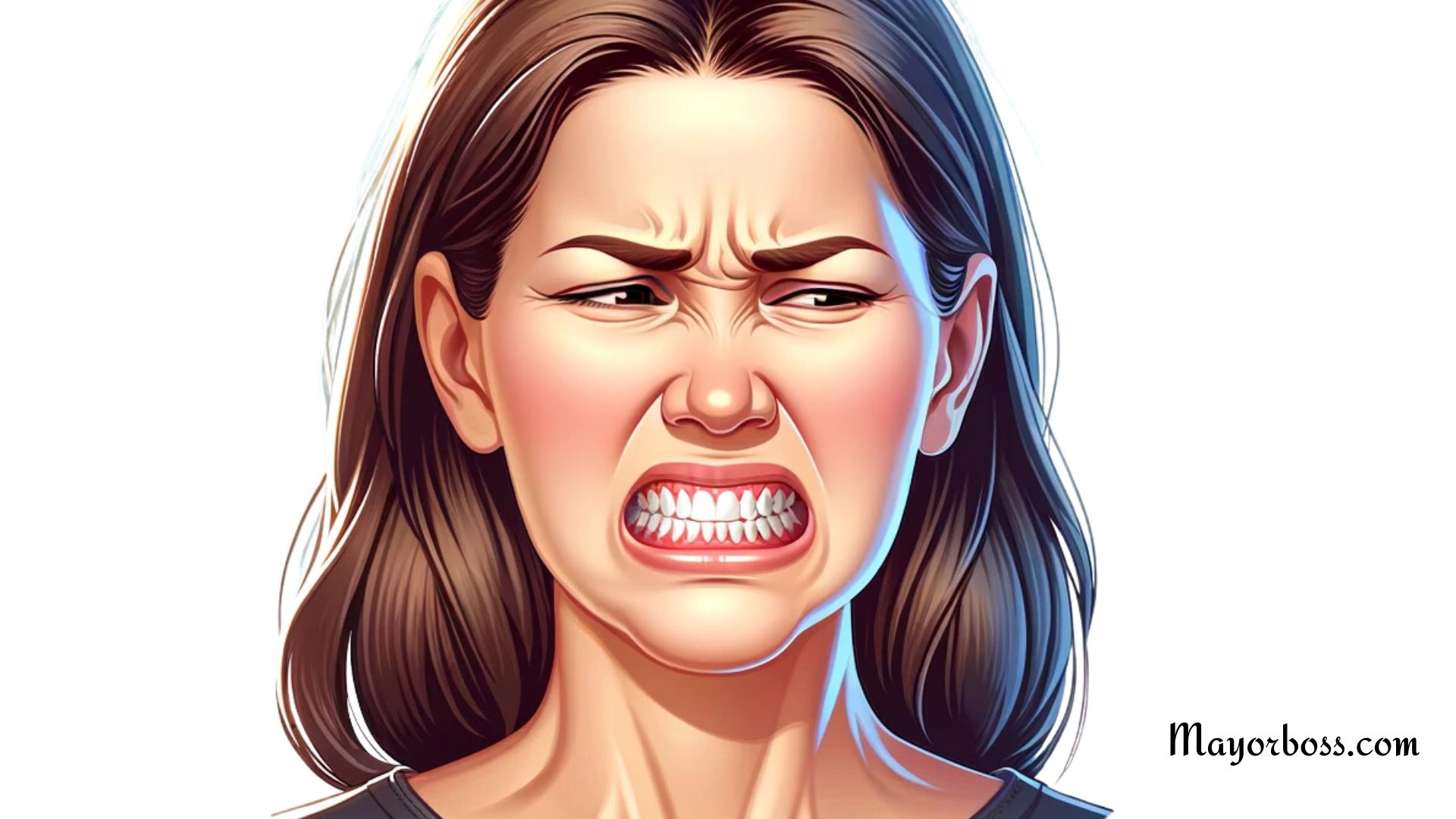Bruxism: Grinding and Clenching of Teeth
Bruxism is a problem where you grind, gnash, or clench your teeth. This can happen during the day or at night, and you might not even be aware you’re doing it. Nighttime teeth grinding is also known as sleep bruxism, and since it happens while you’re asleep, it’s often noticed by a family member or by a dentist who spots signs of tooth wear.

Causes of Bruxism
Stress and Anxiety
For many people, bruxism is often linked to stress or anxiety. When you’re feeling stressed, your body’s natural response may include tensing muscles or clenching your teeth. Even though you might not feel stressed during sleep, your body can still show signs of stress, which can lead to sleep bruxism.
Malocclusion
Malocclusion, which means your teeth don’t align properly, can also be a factor. If your teeth aren’t lined up correctly, you might unconsciously grind them to try to even them out.
Medications and Substances
Certain medications, particularly psychiatric medications like antidepressants, can have side effects that include bruxism. Additionally, substances like tobacco, caffeine, alcohol, and recreational drugs can increase your risk of bruxism.
Other Health Conditions
Bruxism can also be associated with some medical and psychiatric conditions. For example, neurological disorders like Parkinson’s disease or Huntington’s disease can be accompanied by bruxism. Other conditions, like gastroesophageal reflux disease (GERD) or an earache, can provoke the habit of teeth grinding as well.
Symptoms of Bruxism
You may not even realize you have bruxism, but if you have it, you might experience headaches, especially in the morning, sore jaw muscles, and even damage to your teeth, such as chipping or increased sensitivity. Over time, bruxism can lead to disorders in the temporomandibular joints (TMJs), which are the joints on each side of your mouth that allow your jaw to open and close.
Treatment
When you see a doctor or dentist for bruxism, they might suggest various treatments. These can range from mouth guards to protect your teeth at night to stress management techniques if anxiety is a factor. In some cases, correcting misaligned teeth may be recommended, and for severe bruxism, medications may be prescribed to relax the muscles or aid sleep.
Managing Bruxism at Home
For many people, self-care steps can help manage bruxism. This includes reducing stress, practicing good sleep habits, and being mindful of not clenching your teeth. Additionally, avoiding hard foods and chewing gum can prevent you from getting into the habit of clenching and grinding.
When to See a Specialist
If you suspect you have bruxism, particularly if you’re experiencing pain or noticing damage to your teeth, it’s important to consult with a dentist. Bruxism is more than just a simple habit; it’s a medical condition that requires attention. So, if you have any of the symptoms mentioned, don’t hesitate to seek professional advice.
